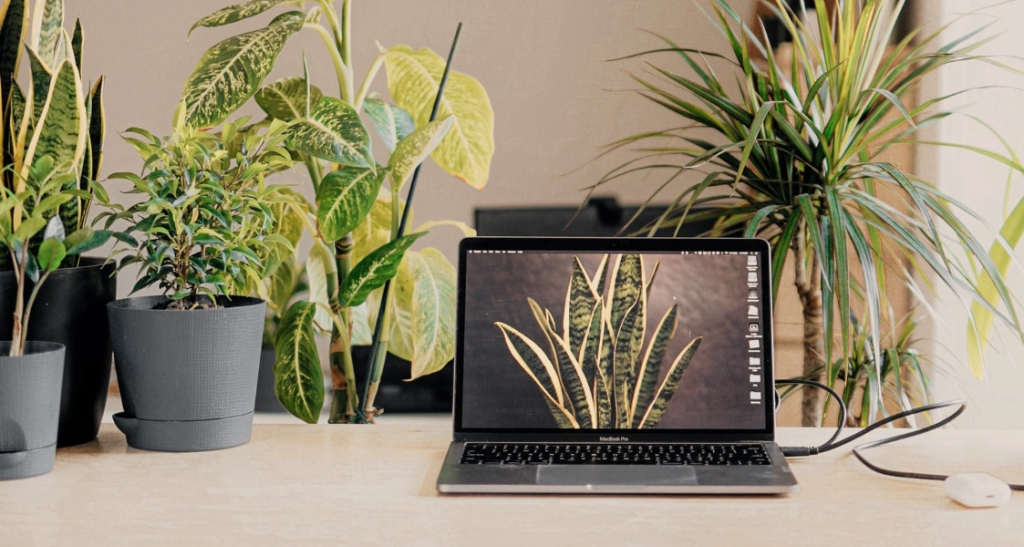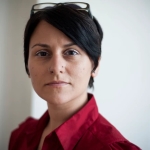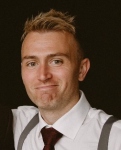In this series, Editors Toronto members and BoldFace contributors share their experience, insights, and tips on the practical aspects of working as an editor or writer. Below are their thoughts on organizing work to stay focused and maintain mental balance.

How do you organize your work when starting a new editing project?
Erin Della Mattia (she/her), writer and burgeoning freelance editor
Honestly, I generally start by ensuring that I have actually received all of the necessary documents, whether that be the most up-to-date version of a piece, an in-house style guide, or specific instructions or guidelines (especially important when editing for students). Then, I back up the original documents to Google Drive, where I also upload copies of my edited versions with new labels. This seems so basic that it’s almost not worth mentioning, but you don’t want to be caught floundering in a sea of mislabelled or misplaced documents.
As for time management, I have five cats and two dogs, so my work schedule typically revolves around their walk/feed schedule. They start getting antsy around 3 pm, so that’s when work time stops and pet time starts.
Adrineh Der-Boghossian (she/her), project manager and freelance editor
I’m currently working full-time in-house, so the number of hours I work per day is set. However, as a freelance editor, I would work five–six hours a day on editing. As any self-employed person knows, your work also includes tasks that are outside of editing itself: marketing, working on your website, bookkeeping—all the administrative stuff.
The things I do when I start a new project should be familiar to most editors: review the house style guide, run Paul Beverley’s pre-editing macros (e.g., DocAlyse, ProperNounAlyse), and do other “silent” edits before starting to edit in earnest. If I had PerfectIt, I would run it before I start an edit and again at the end. I don’t really have a set ritual that includes non-editing tasks, like brewing a cup of tea or setting up my workspace a certain way. I just open my laptop and start working. (And then I wonder why I’m completely exhausted at the end of the day!)
Berna Ozunal (she/her), certified professional editor and editing instructor
I have a paper day planner littered with to-do lists. Everything goes in there. By day, I am assigned work, so it’s organized for me for the most part.
For other work, the most important thing, I think, is to be realistic. I was just saying to my students that ideally editors shouldn’t work for more than six hours a day doing actual editing. I think that’s the max for doing your best work of reading critically and providing thoughtful feedback.
That doesn’t mean you can’t deliver good work after that, but I’ve worked very long days, sometimes 18-hour days. So, speaking from experience, at 2 am you start looking like Jack Nicholson in The Shining, and all the type starts to look the same. Put another way, it’s hard to detect squinting modifiers when you, yourself, are squinting.
Vilma Indra Vītols (she/her), freelance editor-in-training
Curiosity gets the best of me, so before I do anything else, I always do a quick read through at least a part of the project just to get an idea of what it looks like.
I make sure I have my dictionaries and The Chicago Manual of Style at the ready. I very much rely on the class notes from all my editing courses, especially grammar and copy editing—they are invaluable! I also constantly refer to The Copyeditor’s Handbook—it’s the first editing-related book that I bought and is my go-to guide for everything.
I don’t have a proper home office, so I usually set up shop in the bedroom or the kitchen. It’s not ideal, but I try to think of it as having options. As a part-time editor, I don’t have set work hours. But when I do get a project, I start by setting aside a day to get started and take it from there.
Michelle Waitzman (she/her), writer and copy editor
Every new project goes onto my Trello board so I can track its progress. I don’t start anything for a new client until there’s a written agreement in place detailing what I’m doing for them, what the deliverables are, when my work is due, and how much they are paying me (and when).
I usually work between five and six billable hours per day. I find that my concentration is best in the morning, so that’s when I tend to do my writing work. But if I have small assignments with tight turnaround times, I may clear those out of the way first.
Later in the day I do the things that take less focus, like reconciling author reviews and doing a second pass on an edit, doing research for writing projects, reading over what I wrote earlier to self-edit, doing admin work, and so on.
How do you keep a fresh mind and maintain mental balance?
Erin Della Mattia (she/her), writer and burgeoning freelance editor
A few months into the first lockdown, I started forcing myself to walk more frequently throughout the day. I have two dogs, so this is easy for me.
To keep a fresh mind overall, I try to read books in different genres. For instance, I read at least one book of poetry and one book of non-fiction every month. This keeps me from getting bogged down in a particular narrative voice or style, which can happen if you both read and work primarily with fiction. I also regularly indulge in snacks and reality TV breaks, haha.
I know some editors join accountability groups (like those facilitated by the Editors Canada student relations committee via its Facebook group) or plan collective work sessions with fellow freelancers to help manage their time and ensure that they take breaks throughout the day. I don’t currently do this myself, but I think these kinds of groups are great for creating a sort of “positive peer pressure” to both do your work and take breaks from your work.
Adrineh Der-Boghossian (she/her), project manager and freelance editor
I’m still working on this one. I’d say it’s a lifelong endeavour. Sigh.
Alex Marcoccia (he/him), editor-in-chief and freelance editor at Self Pub Hub
Read! All kinds of books, and stories, and writing; the wider the selection, the more well-rounded your view on language and editing will become.
Play! All kinds of things. Sports, video games, thumb wars…anything. This can help you stay playful and approach life and work with curiosity, instead of fear.
Berna Ozunal (she/her), certified professional editor and editing instructor
This type of work can definitely turn you into a “desk potato.” So, I think regular exercise, fresh air, and sunlight are very important. I’ve taken up rowing, and I like biking. I think activity and being outdoors are most important to balance it out. Taking a “stet walk” is a simple thing every editor can do. I am also fortunate to have a dog who takes me out for walks.
Vilma Indra Vītols (she/her), freelance editor-in-training
Since I’m not editing full-time, I always have other types of projects on the go. I’m an opera singer, so I practise regularly either in preparation for a performance or simply to stay in vocal shape.
Also, coffee.
Also, I have a cat.
Michelle Waitzman (she/her), writer and copy editor
I try to keep my work hours regular and avoid doing work on weekends and evenings unless it’s absolutely necessary. Time away from work is extremely important to help me avoid mental fatigue as well as eye strain. I have dogs, so I go for walks every day with them, which forces me to spend time away from my desk.
When I get negative feedback or what seems to be an overwhelming pushback on something, I try to read it once and then put it aside for at least an hour, preferably a day. Usually, what seems horrifying at first is actually not that bad once I get over my initial reaction and look again more calmly.
This article was copy edited by Emily Faubert.







Oh wow, great advice from a diverse range of experience. I always enjoy a good read about the process itself, so this was definitely a treat. Great stuff. Keep em coming!
LikeLike
Hi Stuart, it’s great to hear that, thank you! More are coming.
LikeLike